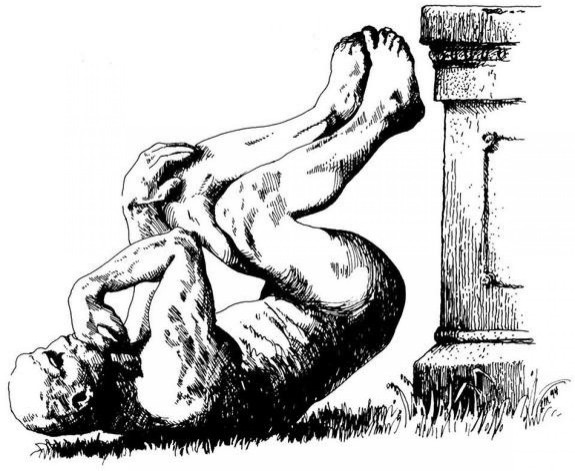2013 Ig Nobel Prize Winners: Honoring The Best Of The Weird And Wacky World Of Science Research

The Ig Nobel prize is given out each year to honor the stranger side of scientific research. The winning research projects of the 2013 Ig Nobel prizes, across 10 categories, include the effects of opera on mice that underwent a heart transplant, the effect of being drunk on a person’s sense of attractiveness and the dung beetle’s ability to use the stars to navigate.
The Ig Nobel prize, given out by Annals of Improbable Research and sponsored by Harvard University, riffs off of the Nobel Prize and is similar to the relationship between the Razzies, the Golden Raspberry Award honoring the worst movies of the year, and the Academy Awards. Unlike the Razzies, the Ig Nobel is celebratory and focuses on research that is out of the ordinary and, at first glance, pretty weird. According to the site, the Ig Nobel prizes “honor achievements that first make people laugh, and then make them think. The prizes are intended to celebrate the unusual, honor the imaginative — and spur people's interest in science, medicine, and technology.” For many, the best part of the ceremony is the participation of real Nobel Laureates including Roy Glauber, Frank Wilczek and Sheldon Glashow.
The 2013 Ig Nobel prize for medicine went to Masateru Uchiyama, lead research on a study that analyzed the effects of opera on mice undergoing heart transplants. The research determined the mice that listened to opera lived longer than mice that listened to New Age music. According to the Guardian, the mice that listened to opera lived for 27 days whereas the average survival for mice after a heart transplant is seven days.
For psychology, Brad Bushman was award the 2013 Ig Nobel prize for his “beer goggles” study involving alcohol and self-assessment of attractiveness. The study confirmed a long-standing belief involving alcohol consumption and self-assessment of beauty. The study concluded “the more alcoholic drinks customers consumed, the more attractive they thought they were.”
The Ig Nobel prize for biology and astronomy went a study that determined African dung beetles use the stars to navigate along straight lines, even in the absence of the moon. This research could lead to some interesting advancements, as researchers could create robots or autonomous vehicles that use the Milky Way that mimic the insect’s ability to use the Milky Way to navigate, reports the Guardian.
A study evaluating the ability of a human to run across water at reduced gravity won the 2013 Ig Nobel prize for physics. Based on the results, with the proper stride and positioning, a human can run across water on the moon. The study that won the chemistry prize discovered a new enzyme involved int the mechanism that makes an individual cry as they chop onions. Based on the research, there could be an onion that is created without these enzymes thus eliminating any tears.
For the sake of science, researchers parboiled a shrew, swallowing it whole, taking care to not chew, and analyzed the fecal content. The goal of the research, which won the prize for archaeology, was to determine what bones were dissolved by the human digestive system. A study documented the likelihood of a cow standing up after lying down and the possibility of the cow, after standing, would once again lie down won the 2013 Ig Nobel prize for probability. According to Improbable Research, the study won the award "for making two related discoveries: First, that the longer a cow has been lying down, the more likely that cow will soon stand up; and Second, that once a cow stands up, you cannot easily predict how soon that cow will lie down again."
In addition to the focus on scientific research, some of the Ig Nobel categories focused on achievements in peace, safety engineering and public health. The prize for peace went to Belarus for the new law that banned applauding in public and for the arrest of a one-armed man, for applauding, by the Belarus State Police. Gustano Pizzo was awarded posthumously for his anti-hijacking system for airplanes, designed to trap, wrap and drop would-be hijackers from an airplane. A parachute would deploy and the individual delivered to police. The public health award went to a study examining various methods to reattach a male's reproductive organ after amputation.
The full video of the 2013 Ig Nobel prize award ceremony can be viewed below. Improbable Research also had some fun in the wake of all the news about NSA spying, offering a "top secret" NSA Courtesy Cam feed for "the world's top security agencies."
© Copyright IBTimes 2024. All rights reserved.






















